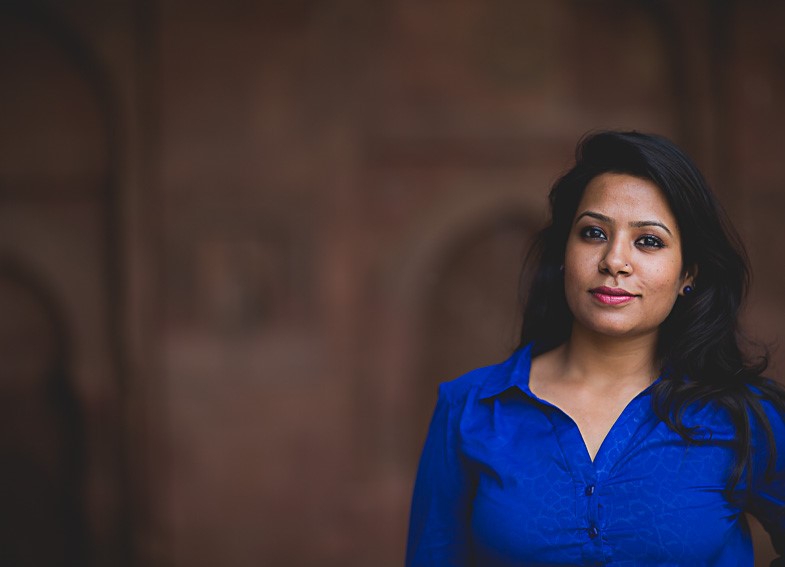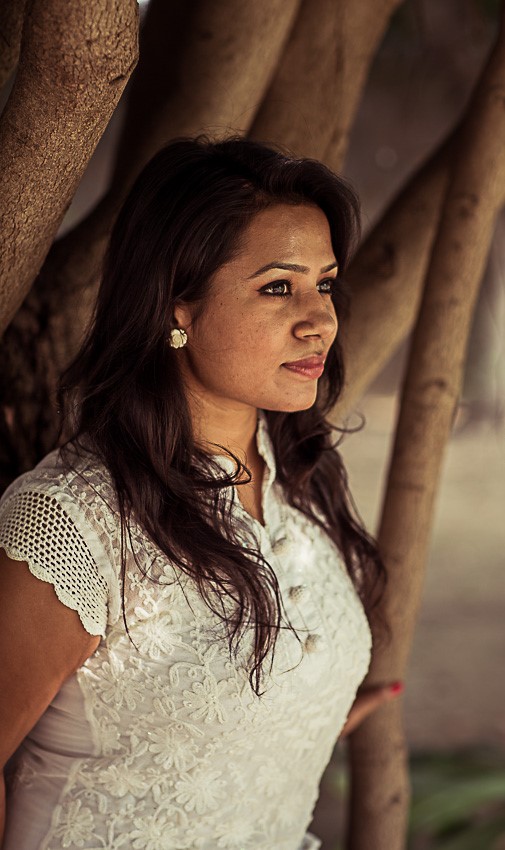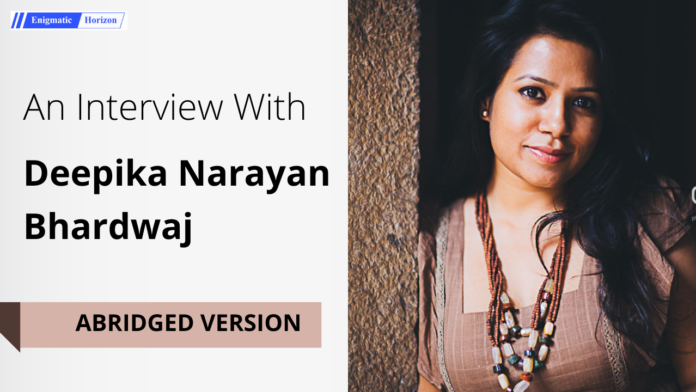Interviewed by – Robin Bhuyan (Editor in Chief), Priyal Dholakia
Written and edited by – Priyal Dholakia – (Assistant Editor)
She has been called a “firebrand journalist,” a “fierce advocate,” and a “voice for the voiceless.” Deepika Narayan Bhardwaj has made it her life’s work to shed light on the often-ignored issue of men’s rights in India. Through her powerful documentaries and unwavering activism, Deepika has become a prominent figure in the fight for actual gender equality. In this interview, we will get to know the woman behind the headlines and hear her insights on the challenges men in India are facing today.
This is an abridged version of the original interview. If you want to read the full interview, click here.
EH: First of all, we would like to thank you for giving us your valuable time. We already know what motivated you to stand up for the rights of men who face false accusations from women. However, we would like to know what exactly inspired you to choose documentary filmmaking as a way to expose this important issue.
DNB: There was a personal incident that occurred with me back in 2011, after which my life completely changed. I had to see my own family go through the trauma of facing false dowry accusations. At that time, I was working as a special correspondent with a media organization in Delhi. My cousin-brother got married in the same year. Sadly, his marriage split apart within 3–4 months owing to the extramarital affair of his ex-wife. Even though the separation was amicable at first, immediately after two months, the girl’s family sent a legal notice to him, falsely accusing him of demanding dowry. They even accused my cousin’s family of domestic violence. The charges were all completely unfounded, white lies with not a single ounce of truth in them. My cousin’s family went through immense trauma, including suicide attempts, due to these fake allegations. So, that is when I started studying in depth about Section 498A of the IPC. I came to know that it is a serious problem plaguing our society and strongly felt the need to raise awareness about the cause. I realized that the only way I could do it was by making a documentary film around it, since it was one of the things I specialized in while pursuing my journalism course. I was sure that a well-documented film that chronicles the real-life experiences of people suffering from this could possibly have a huge impact.
EH: Initially, feminism was started to provide rights to women who were denied basic rights. But today, we can see that feminism is taking a completely different turn. Do you think that there is a bigger conspiracy to destroy the traditional family system?
DNB: Well, I do not think I have the necessary claims to comment on this. I always tend to rely on strong evidence to be convinced or make a point about something. I am not too sure if it is some sort of planned conspiracy or not. But yes, it is very evident and visible that the capitalists, of course, see the joint family unit as a barrier to progress. They link joint families with impediments like consumerism and other things. We are seeing that nowadays, people are breaking free from the nuclear family system as well. Today, there is this whole idea of telling women that if you are working in your home, then you are a slave. But if you are working as a slave for your employer, then you are empowered. There is absolutely no problem with women working. Women should work, and women need to work. But if a woman chooses to be a homemaker or stay at home, it does not discredit her empowerment or account for slavery in any way.
EH: Do you think that today many young people in India, especially men, are refusing to get married? If yes, do you think modern feminism has a role to play in this?
DNB: I think the only reason men are completely refusing to get into marital relationships is essentially because of the laws in India. Even in the West, men have started preferring live-in relationships over marriages. That is simply because live-in relationships do not entail as many responsibilities as the traditional system of marriage imposes. Also, the laws are not amended enough to support men who have to bear the burden of broken marriages. The same thing is happening in India too. The laws are burdening men with every kind of responsibility. No matter if it is the man who is on the receiving end, it is the woman who is always favored. So, we see that a lot of men are giving up on marriage because of this
EH: As we already know, the Indian legal system has been very biased towards women. Do you think that there is any chance that this will change and we will achieve true gender equality?
DNB: Of course, it will change. You know, the laws are ultimately the outcome of society’s shift. Even though men’s rights are at the bottom of the spectrum right now, a shift is definitely taking place, albeit slowly and steadily.

EH: Some people criticize the men’s rights movement as being anti-feminist or misogynistic and promoting toxic masculinity. What is your stance on this issue, and how do you think it can be addressed?
DNB: What we observe these days is that if we disagree with any of the feminists’ arguments, they frequently take a hostile stance toward us. I have faced this problem many times myself in the last 10–11 years during my movement to promote men’s rights. But since my conviction in my cause is so strong, I have not let these things bog me down. So, yes, I have often found this tendency among many feminists that they cannot hear counter-views or arguments. They cannot hear anything that goes against their ideology or way of thinking. I think this is not very productive. It basically limits our ideas to being very rigid and unhealthy.
EH: The rise in fake rape and dowry harassment cases is also harming women. Because of the rise in such cases, even if a woman is actually victimized, the public is going to be less likely to believe her. What do you think women can do about this?
DNB: Absolutely. I have always believed that false accusations are not only detrimental for men and their families; they are equally detrimental to women too. If such false accusations against men keep rising, society will eventually stop believing women who are actually suffering. At the end of the day, we have to ensure that no human being has to face any kind of unfairness or injustice in any way. Regardless of whether a woman or a man commits the wrong, it is still wrong. This is also what I am trying to promote through my work. And this is the reason why a lot of women are also supporting my cause.

EH: What advice would you give to young people, especially men, before getting into a committed relationship?
DNB: I think the first and most important thing is to find out whether the other person is actually being truthful to you or not. One should be transparent with the other person and not hide anything. A bond that is built on lies will eventually break. So, it is essential to make basic inquiries and have open communication before getting into any kind of committed relationship or marriage.
EH: Do you feel that your movie, Martyrs of Marriage, got the kind of attention it deserved? Do you think your purpose of highlighting the male victims of modern marriage was achieved?
DNB: Well, I did not have any predefined checklists on what the film should be doing. I had not anticipated its results or the audience’s response beforehand. My only idea and purpose behind making the film was to raise awareness, reach out, and support those who are victims of false accusations. On that parameter, I think the movie has helped thousands and millions of people.

EH: You had produced another documentary, India’s Sons. Do you think it made a significant impact to highlight the issue of false rape cases?
DNB: After covering the topic of false dowry cases in my first film, Martyrs of Marriage, my natural inclination was to look at false rape cases for my next film. In 2012, the Nirbhaya case happened, and there was a huge public outrage around it. And after that, the laws were overhauled within a month. Just like dowry laws, I am also seeing the rising mockery and misuse of rape laws happening today. On a daily basis, I am seeing cases wherein a woman is falsely accusing a man of raping her on completely unverifiable grounds. Such fake allegations are really obnoxious. It is like making a mockery of one of the gravest crimes to occur. So, I genuinely hope that this film creates some sort of impact in that space. India’s Sons did not get a release on any of the OTT platforms. Because I think, despite the rising number of cases happening around us, people are still hesitant to talk openly about these things. Nonetheless, I continue to work on these issues and bring eye-opening stories to the fore. I am sure there will be greater awareness in the years to come.
EH: There are many movies that are made to highlight women’s issues. However, when it comes to men’s issues, we hardly see such films. Even if such films are made, they don’t gain much popularity. What do you think is the reason behind this?
DNB: I think the larger concern of everyone is naturally and rightly more towards protecting women. This is because women are more vulnerable and suffer from social issues and safety concerns on a daily basis. They are susceptible to encountering crimes and abuses on a more frequent basis than men. So, the natural instinct of the public at large is more inclined towards highlighting what women go through and their struggles. As a result, we see that many films are being made around that. Since the assaults committed against men are relatively fewer in number, themes centered around men’s victimization often do not take center stage. Moreover, there is still a large section of society that is reluctant to accept that men may get victimized or abused too. So, these are some of the probable reasons why such films are hardly being made.
EH: Would you like to give any parting messages to our readers?
DNB: I would request your readers to please watch Martyrs of Marriage and India’s Sons. They will understand the entire interview much better by looking at these documentaries. Martyrs of Marriage is available on YouTube, and India’s Sons is available on the website www.indiassons.com.
EH: Thank you so much for sharing your valuable insights and candid responses with us! We really appreciate you taking the time to talk to us. We really hope all your endeavors find success.
DNB: Thank you so much!
